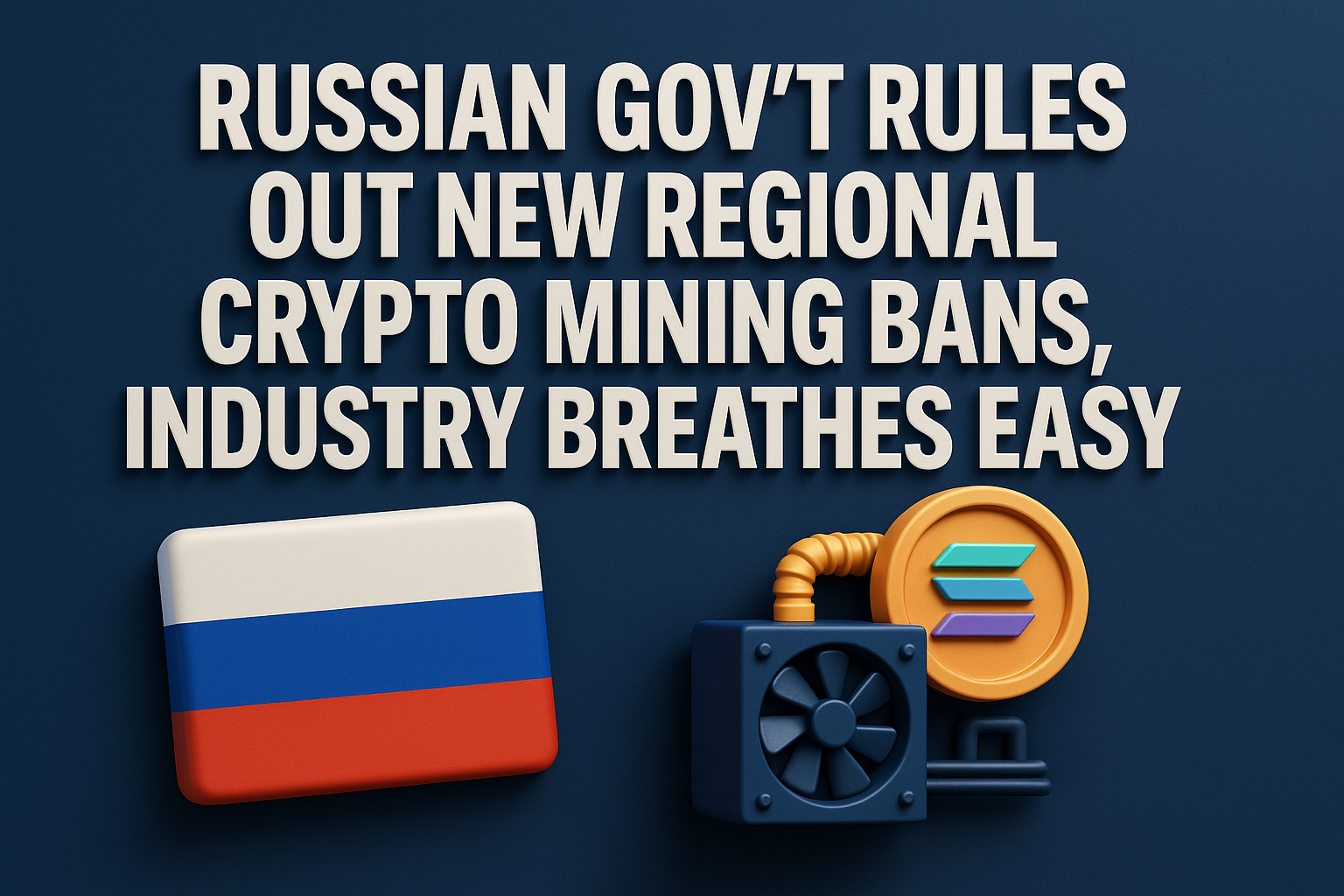Russia’s energy authorities have announced that they have no plans to introduce additional regional bans on cryptocurrency mining. Officials confirmed that the national grid is handling mining demand effectively, and no local administrations have requested new restrictions. This move offers reassurance to both legal and industrial miners, many of whom feared tighter measures. By ruling out further prohibitions, the government is signaling a more balanced and collaborative approach toward the crypto mining industry.
Energy Ministry’s Position
The Ministry of Energy stressed that Russia’s power infrastructure is stable and capable of absorbing the growing load from mining operations. With supply and demand currently in balance, officials see no justification for expanding the list of prohibited regions.
Rather than restricting the sector, Moscow has urged regions with surplus energy capacity to work alongside large mining companies. In return, miners are expected to declare their income transparently and contribute computing power to national artificial intelligence projects. This strategy reflects the government’s attempt to integrate mining into broader economic and technological initiatives.
Local Concerns and Ongoing Challenges
Despite the national outlook, some mining hotspots face continued stress on their local power grids, particularly during peak demand. Illegal and unregulated mining operations also put pressure on infrastructure while depriving authorities of revenue.
To address these challenges, officials have proposed creating a special consumer category for crypto miners. This would give power companies the right to temporarily disconnect mining farms during peak hours, protecting electricity supplies for residents and essential industries while still allowing miners to operate during off-peak periods.
Implications for the Mining Industry
For legitimate operators, the news that the Russian Gov’t rules out further regional crypto mining bans is a positive development. It reduces fears of sudden restrictions and creates a more predictable environment for investment in equipment and infrastructure.
At the same time, regions with unused energy capacity could benefit economically by entering structured partnerships with miners. Such cooperation may generate government revenue, support local jobs, and ensure efficient use of available power resources. This reflects a clear shift from prohibition toward cooperation and regulation.
Regulatory Measures Under Review
While new bans are off the table, the government is preparing policies to tighten oversight of the sector. Measures under consideration include:
- Mandatory registration of mining entities.
- Monitoring electricity usage to manage grid stability.
- Formal agreements between miners and power companies.
- Disconnection rules to reduce pressure during peak demand.
These regulations would allow authorities to maintain greater control while still enabling mining to contribute to the economy.
Final Thoughts
The decision by the Russian Gov’t to rule out further regional crypto mining bans highlights a pragmatic, forward-looking approach. Instead of prohibiting mining outright, officials are promoting cooperation, regulation, and oversight.
For miners, this signals a more predictable and supportive business environment, though responsibility remains to operate transparently and in line with national goals. While challenges such as illegal mining and regional grid strain persist, the direction is clear: regulation, not prohibition, will shape the future of crypto mining in Russia.



